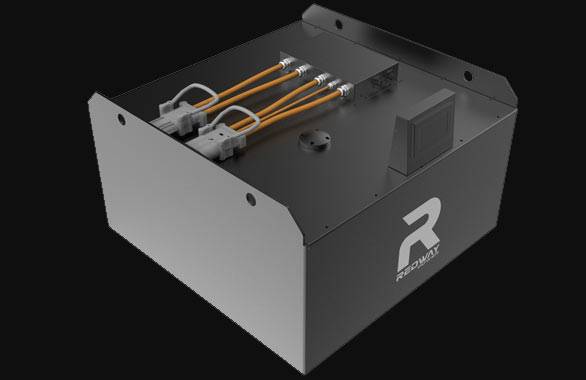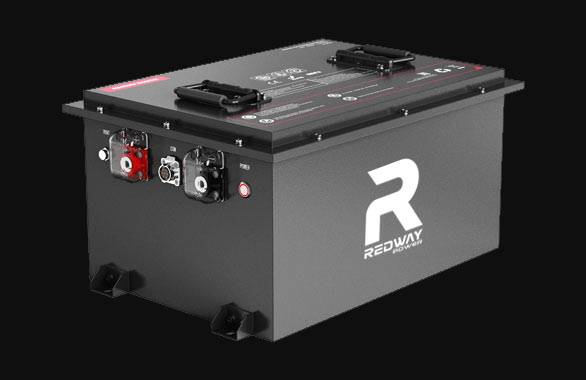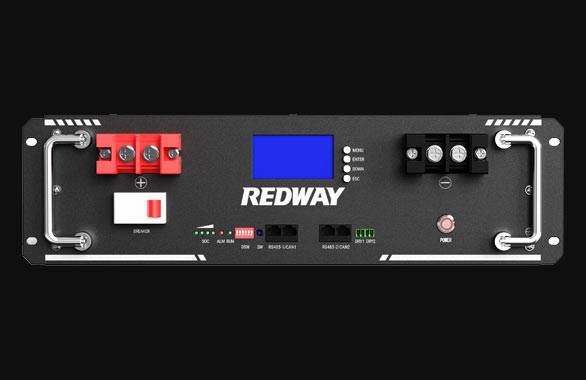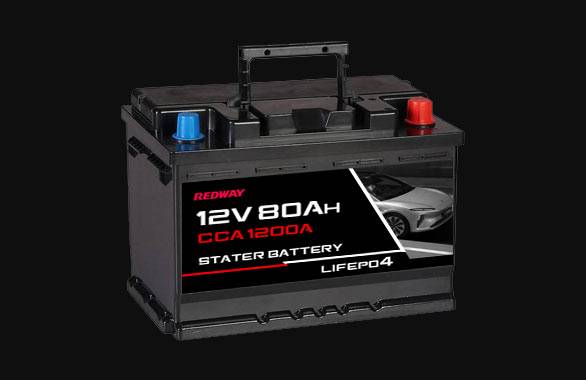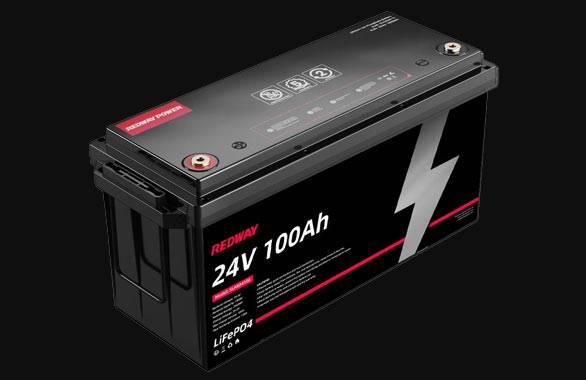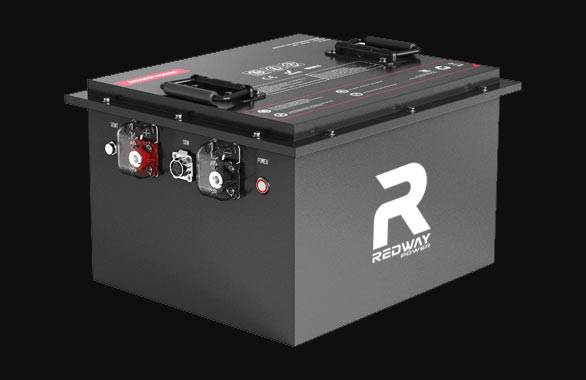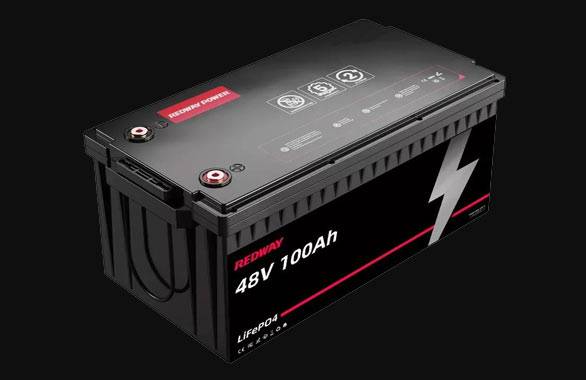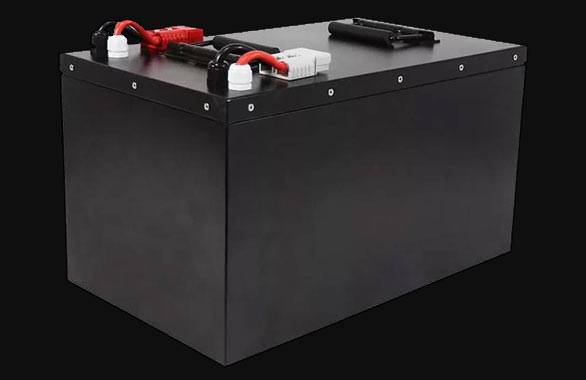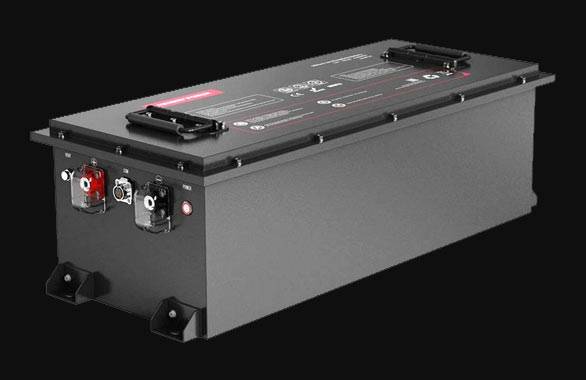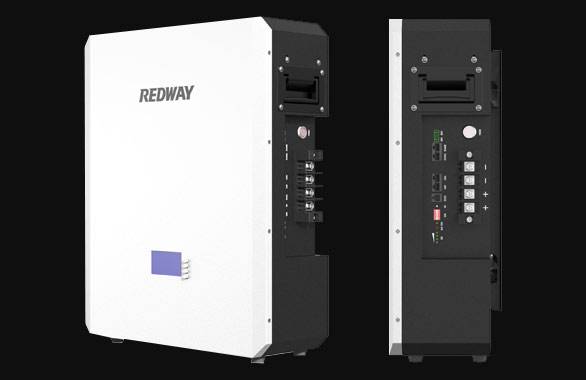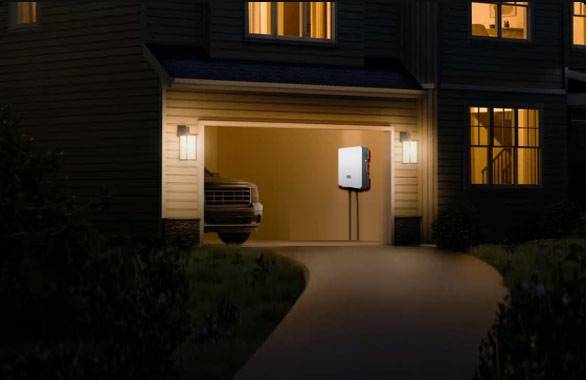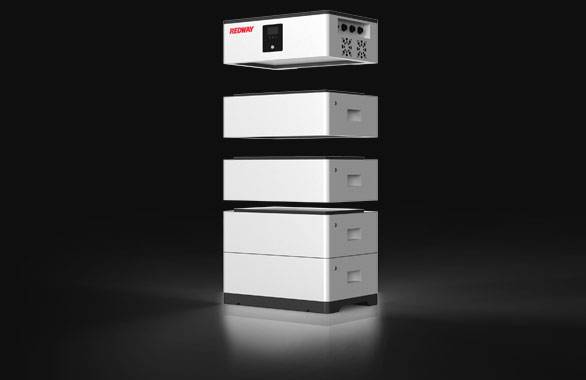- Forklift Lithium Battery
- Golf Cart Lithium Battery
- Rack-mounted Lithium Battery
51.2V 100Ah Rackmount LiFePO4 Battery
8000 times (80% DOD 0.5C)
Optional SNMP for TELECOM - Car Starter Battery
- 12V LiFePO4 Battery
12V 150Ah Lithium RV Battery
Bluetooth App | Self-heating
LiFePO4 | Group 31
UL 1642 | IEC 62619 - 24V LiFePO4 Battery
- 36V LiFePO4 Battery
- 48V LiFePO4 Battery
- 60V LiFePO4 Battery
60V 100Ah Lithium Battery (AGV, AMR, LGV)
Peak Discharge Current 400A
500 x 298 x 349 mm - 72V~96V LiFePO4 Battery
72V 100Ah Lithium Golf Cart Battery
Peak Discharge Current 315A (10S)
740 × 320 × 246 mm - Wall-mounted Lithium Battery
51.2V 100Ah 5kWh
Wall-mounted Battery532 x 425 x 170 mm / LiFePO4
>8000 Cycles (80% DOD 0.5C)
RS485 / CAN-bus
for Solar Home ESS - Home-ESS All-in-One
51.2V 32kWh
All-in-On HESS SystemPowerAll
51.2V / LiFePO4
>8000 Cycles (80% DOD 0.5C)
RS485 / CAN-bus / WiFi
All-in-One for Home ESS
Ultimate Comparison: 48V LiFePO4 Batteries Vs. Other Battery Types
In the ever-evolving world of battery technology, choosing the right type of battery for your needs is crucial. 48V LiFePO4 batteries have gained significant attention due to their impressive performance characteristics, but how do they measure up against other popular battery technologies? This comprehensive comparison delves into the pros and cons of 48V LiFePO4 batteries in relation to various other battery types, including lead-acid, lithium-ion, nickel-cadmium, alkaline, nickel-metal hydride, gel, lithium polymer, and zinc-carbon batteries. Our goal is to provide you with the information necessary to make an informed decision based on your specific requirements.
48V LiFePO4 batteries outperform traditional battery types like lead-acid and other lithium-ion chemistries by offering higher energy density, longer lifespan, faster charging, lighter weight, and superior safety. These advantages make them ideal for electric vehicles, renewable energy storage, and industrial applications, delivering better performance and lower total cost of ownership.
What are the voltage and capacity differences between 48V LiFePO4 and other batteries?
48V LiFePO4 batteries typically have a nominal voltage around 48V to 51.2V, composed of 15 to 16 cells in series. Capacities range widely, from 30Ah to over 600Ah, allowing tailored energy storage. In contrast, lead-acid batteries have similar voltage but lower usable capacity and energy density.
How does energy density compare across battery types?
48V LiFePO4 batteries provide energy densities between 90-160 Wh/kg, significantly higher than lead-acid batteries which offer about 30-40 Wh/kg. This means LiFePO4 batteries store more energy in a smaller, lighter package, enhancing portability and efficiency.
What are the lifespan and cycle life differences?
LiFePO4 batteries deliver 2000 to 7000+ charge cycles, far exceeding the 300-500 cycles typical of lead-acid batteries. This extended cycle life reduces replacement frequency and lowers overall costs.
How do charging times differ?
LiFePO4 batteries charge faster, typically within 4-6 hours, compared to 8-12 hours for lead-acid batteries. Faster charging reduces downtime and increases operational readiness.
What about weight and maintenance?
LiFePO4 batteries weigh about 40-60% less than lead-acid batteries and require minimal maintenance—no watering or equalizing charges. Lead-acid batteries are heavier and need regular upkeep to prevent sulfation and capacity loss.
How do safety features compare?
LiFePO4 chemistry is inherently safer, with thermal and chemical stability that reduces risks of fire or explosion. They include sophisticated Battery Management Systems (BMS) for overcharge, over-discharge, and temperature protection. Lead-acid batteries contain hazardous materials and pose higher environmental risks.
What are the cost considerations?
While LiFePO4 batteries have a higher upfront cost, their longer lifespan, lower maintenance, and improved efficiency often result in a lower total cost of ownership over time compared to lead-acid batteries.
How does Redway Power ensure quality in 48V LiFePO4 batteries?
Redway Power manufactures 48V LiFePO4 batteries under ISO 9001:2015 certification with advanced Manufacturing Execution Systems (MES) to guarantee consistent quality, safety, and performance. Their batteries are designed for durability and reliability in demanding applications.
Energy Density and Cycle Life Comparison Chart
| Battery Type | Energy Density (Wh/kg) | Cycle Life (Charge Cycles) | Weight (Relative) | Maintenance |
|---|---|---|---|---|
| 48V LiFePO4 | 90-160 | 2000-7000+ | Lightest | Minimal |
| Lead-Acid | 30-40 | 300-500 | Heaviest | Regular watering |
| Other Lithium-ion | 150-200 | 1000-3000 | Light | Moderate |
Energy Density: 48V LiFePO4 Vs. Lead-Acid Batteries
When evaluating energy density, one of the most critical factors is how much energy a battery can store relative to its size and weight. 48V LiFePO4 batteries stand out with their higher energy density compared to traditional lead-acid batteries.
- 48V LiFePO4 Batteries: These batteries offer a superior energy density, typically around 90-160 Wh/kg, allowing for more compact designs and lighter battery packs.
- Lead-Acid Batteries: In contrast, lead-acid batteries generally provide an energy density of about 30-40 Wh/kg. This lower density means that lead-acid batteries are bulkier and heavier for the same energy storage capacity.
This enhanced energy density of LiFePO4 batteries translates into more efficient power storage and delivery, making them an excellent choice for applications where space and weight are critical factors.
Cost Breakdown: 48V LiFePO4 Batteries Vs. Lithium-Ion Batteries
Cost is a significant consideration when choosing a battery type. Here’s a detailed cost analysis of 48V LiFePO4 batteries compared to lithium-ion batteries.
- 48V LiFePO4 Batteries: While initially more expensive, these batteries often offer lower overall costs due to their long lifespan and reduced maintenance requirements. The typical cost of LiFePO4 batteries ranges from $300 to $800 per unit, depending on capacity and features.
- Lithium-Ion Batteries: Generally, lithium-ion batteries are priced between $400 and $1000 per unit. They offer a higher energy density but tend to have a shorter lifespan compared to LiFePO4 batteries, which can result in higher long-term costs.
For users looking for a cost-effective solution in the long run, 48V LiFePO4 batteries provide significant savings due to their durability and extended cycle life.
Power Output: 48V LiFePO4 Vs. Nickel-Cadmium Batteries
Power output is essential for applications requiring high energy demands. Let’s compare the power capabilities of 48V LiFePO4 batteries and nickel-cadmium batteries.
- 48V LiFePO4 Batteries: These batteries deliver a consistent and high power output with excellent efficiency. They can handle high discharge rates, making them suitable for demanding applications like electric vehicles and backup power systems.
- Nickel-Cadmium Batteries: Nickel-cadmium batteries, while known for their durability, typically have a lower power output compared to LiFePO4. Their power capabilities are limited by their higher internal resistance and lower efficiency in high-drain applications.
In scenarios where high power output is critical, 48V LiFePO4 batteries are a superior choice.
Safety First: 48V LiFePO4 Battery Features Vs. Other Types
Safety is paramount when selecting a battery. 48V LiFePO4 batteries are renowned for their safety features compared to other battery types.
- 48V LiFePO4 Batteries: These batteries are highly stable and have a lower risk of thermal runaway compared to other lithium-based technologies. They feature robust thermal management and built-in protection circuits to prevent overcharging and short circuits.
- Other Battery Types: Lead-acid and nickel-cadmium batteries can pose higher risks due to their susceptibility to leaks and thermal runaway. Lithium-ion batteries, while efficient, are also prone to overheating and require stringent safety measures.
The safety features of 48V LiFePO4 batteries make them a reliable option for both consumer and industrial applications.
Environment-Friendly Evolution: 48V LiFePO4 Vs. Alkaline Batteries
Environmental impact is a critical factor in choosing a battery type. Let’s assess the ecological footprint of 48V LiFePO4 batteries compared to alkaline batteries.
- 48V LiFePO4 Batteries: These batteries are considered environmentally friendly due to their long lifespan and recyclability. They contain non-toxic materials and have a lower environmental impact over their lifetime.
- Alkaline Batteries: While common, alkaline batteries are single-use and often end up in landfills. They contain hazardous materials and have a more significant environmental footprint due to their disposal issues.
Opting for 48V LiFePO4 batteries supports eco-conscious decisions and contributes to a more sustainable future.
Unbreakable Durability: 48V LiFePO4 Vs. Nickel-Metal Hydride Batteries
Durability is a key factor for long-term battery performance. Let’s evaluate the durability of 48V LiFePO4 batteries compared to nickel-metal hydride (NiMH) batteries.
- 48V LiFePO4 Batteries: Known for their robust construction, these batteries can withstand rigorous conditions and have a long cycle life. They are resistant to mechanical stress and temperature variations.
- Nickel-Metal Hydride Batteries: NiMH batteries, while more durable than older technologies, do not match the ruggedness and lifespan of LiFePO4 batteries. They have a shorter cycle life and are more sensitive to high temperatures.
48V LiFePO4 batteries excel in terms of durability, making them ideal for demanding environments.
Efficiency Unleashed: 48V LiFePO4 Vs. Gel Batteries
Efficiency in power systems is crucial for optimal performance. Comparing 48V LiFePO4 batteries with gel batteries reveals significant differences.
- 48V LiFePO4 Batteries: These batteries offer high efficiency with low internal resistance and minimal energy loss during charge and discharge cycles. They ensure better energy conversion and longer battery life.
- Gel Batteries: Gel batteries, while safe and maintenance-free, generally have lower efficiency compared to LiFePO4 batteries. Their performance can be affected by higher internal resistance and lower charge acceptance rates.
For optimal efficiency, 48V LiFePO4 batteries are the preferred choice.
Unveiling Cycle Life: 48V LiFePO4 Vs. Lithium Polymer Batteries
Cycle life determines how long a battery can be used before its performance significantly deteriorates. Comparing 48V LiFePO4 batteries with lithium polymer (LiPo) batteries provides insight into their longevity.
- 48V LiFePO4 Batteries: These batteries are renowned for their long cycle life, typically ranging from 2000 to 5000 cycles. They maintain their capacity and performance over a significant number of charge and discharge cycles.
- Lithium Polymer Batteries: LiPo batteries usually offer a shorter cycle life, often around 300 to 500 cycles. While they provide high energy density, their lifespan is limited compared to LiFePO4 batteries.
For applications requiring longevity and reliability, 48V LiFePO4 batteries are superior.
Temperature Titans: 48V LiFePO4 Vs. Zinc-Carbon Batteries
Understanding temperature sensitivity is crucial for battery performance. Comparing 48V LiFePO4 batteries with zinc-carbon batteries highlights their temperature resilience.
- 48V LiFePO4 Batteries: These batteries perform well across a wide temperature range. They are designed to operate efficiently in both high and low temperatures, providing stable performance.
- Zinc-Carbon Batteries: Zinc-carbon batteries are more sensitive to temperature extremes. Their performance can degrade significantly in high or low temperatures, leading to reduced efficiency and shorter lifespan.
48V LiFePO4 batteries offer reliable performance in varied temperature conditions.
Thriving Under Load: 48V LiFePO4 Battery Testing Vs. Other Types
Testing battery performance under load is essential for understanding their real-world capabilities. Here’s how 48V LiFePO4 batteries perform compared to other battery types.
- 48V LiFePO4 Batteries: These batteries excel in load testing scenarios, providing consistent power output and maintaining efficiency under high-demand conditions. They are well-suited for applications requiring high current draw.
- Other Battery Types: Many traditional battery types, such as lead-acid and nickel-cadmium, struggle to maintain performance under heavy loads, often showing significant voltage drops and reduced efficiency.
For systems with demanding power requirements, 48V LiFePO4 batteries ensure optimal performance and reliability.
In conclusion, 48V LiFePO4 batteries offer a superior combination of energy density, cost-effectiveness, power output, safety, environmental friendliness, durability, efficiency, cycle life, temperature resilience, and performance under load. They stand out as an excellent choice across various applications, from golf carts to backup power systems, offering long-term benefits and superior performance compared to other battery technologies.


